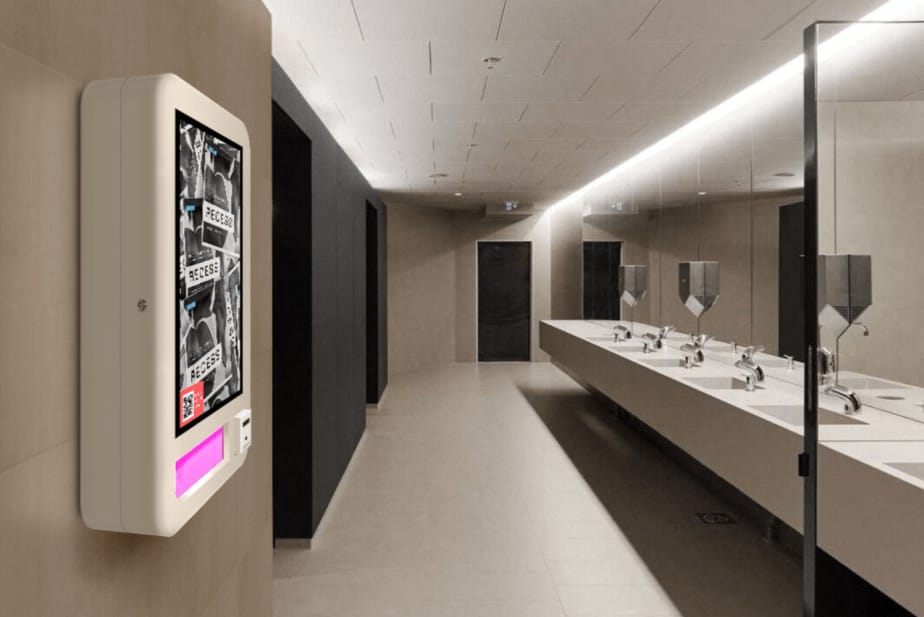By A Correspondent
In a world where access to personal care in public spaces remains an overlooked concern, two young Indian entrepreneurs are changing the narrative — one vending machine at a time.
Meet Diksha Gokhale and Rohit Jagtap, the co-founders of GJE Lustre Private Limited, the company behind DreamiFly — an AI-powered, self-care vending solution that provides free beauty and hygiene products to users. The catch? These machines are entirely funded by targeted digital advertising, creating a win-win model for both users and brands.
“We wanted to create a model where self-care isn’t a privilege, but a right — accessible, dignified, and modern,” says Diksha Gokhale, CEO of GJE Lustre. “Imagine a teenage girl at a metro station who suddenly needs a sanitary napkin — and she gets it for free, sponsored by a brand she trusts. That’s the experience we want to build across India.”
From Vision to Venture
Founded in 2022, GJE Lustre emerged from a simple yet powerful idea: to bridge the gap between accessibility and advertising efficiency. While traditional vending machines are either expensive or limited in scope, DreamiFly offers something truly disruptive.
“We use AI, IoT, and real-time analytics not just to dispense products, but to gather actionable insights,” explains Rohit Jagtap, the company’s CTO and the tech brain behind the innovation. “Our machines don’t just serve — they learn. They help brands know who’s using their products, when, where, and why.”
DreamiFly’s smart vending machines offer free makeup, skincare, menstrual, and haircare products in high-footfall areas like metro stations, airports, hospitals, and corporate campuses. Behind the scenes, they run on a smart monetization engine driven by AI-powered targeted ads — giving FMCG and beauty brands a hyperlocal, high-impact advertising platform.
The Business of Free
At first glance, the model seems too good to be true — free products in public spaces?
“Yes, it’s free for the user,” Diksha clarifies. “But it’s funded by brands that are eager to get closer to their ideal customers. We offer them more than ad impressions — we offer engagement, experience, and data.”
The startup operates on a freemium model supported by:
- Sponsored products from partner brands like Sephora, Nykaa, Tira, and Tata Cliq Palette
- Subscription packages for premium ad placements
- Data analytics sales based on anonymized user behavior and footfall
Strong Traction, Growing Demand
The company has already secured confirmed orders from Pune Metro, Pune Airport, and multiple hospitals, with each machine expected to attract 5,000 to 10,000 footfalls daily.
“We’re seeing incredible interest from brands and institutions alike. The demand has outpaced our current production — we need to scale, and fast,” says Rohit.
To fulfill these orders and fuel expansion, GJE Lustre is currently seeking ₹2.4 Crore ($288K) in funding. The startup has already secured ₹20 Lakhs from the Startup India Seed Fund, and projects monthly revenues of ₹3 to ₹9 Lakhs per machine through advertising and product sponsorships.
Market Potential and Expansion Plans
With over 21 million urban women aged 15–45 in India and an $18 billion personal care market growing at 9% CAGR, the opportunity is massive.
The roadmap is ambitious:
- 24 machines in Pune Metro and Airport within 3 months
- 60 machines in 6 months across major cities
- 500+ machines nationally within a year
- International expansion to Southeast Asia and the Middle East in the second year
“This isn’t just about vending. It’s about visibility, dignity, and democratizing wellness,” says Diksha. “We want DreamiFly to be part of every woman’s daily routine — something as natural as using the metro or grabbing a coffee.”
Final Thoughts
In just under two years, GJE Lustre has managed to combine social impact, smart tech, and a sustainable business model — all wrapped in a sleek, touchless interface.
“We’re not just building machines. We’re building trust, access, and a smarter way for brands to care,” says Rohit.
In a country ready to embrace innovation, DreamiFly may well be the beginning of a new era in public self-care — where a better world starts with a better machine.

